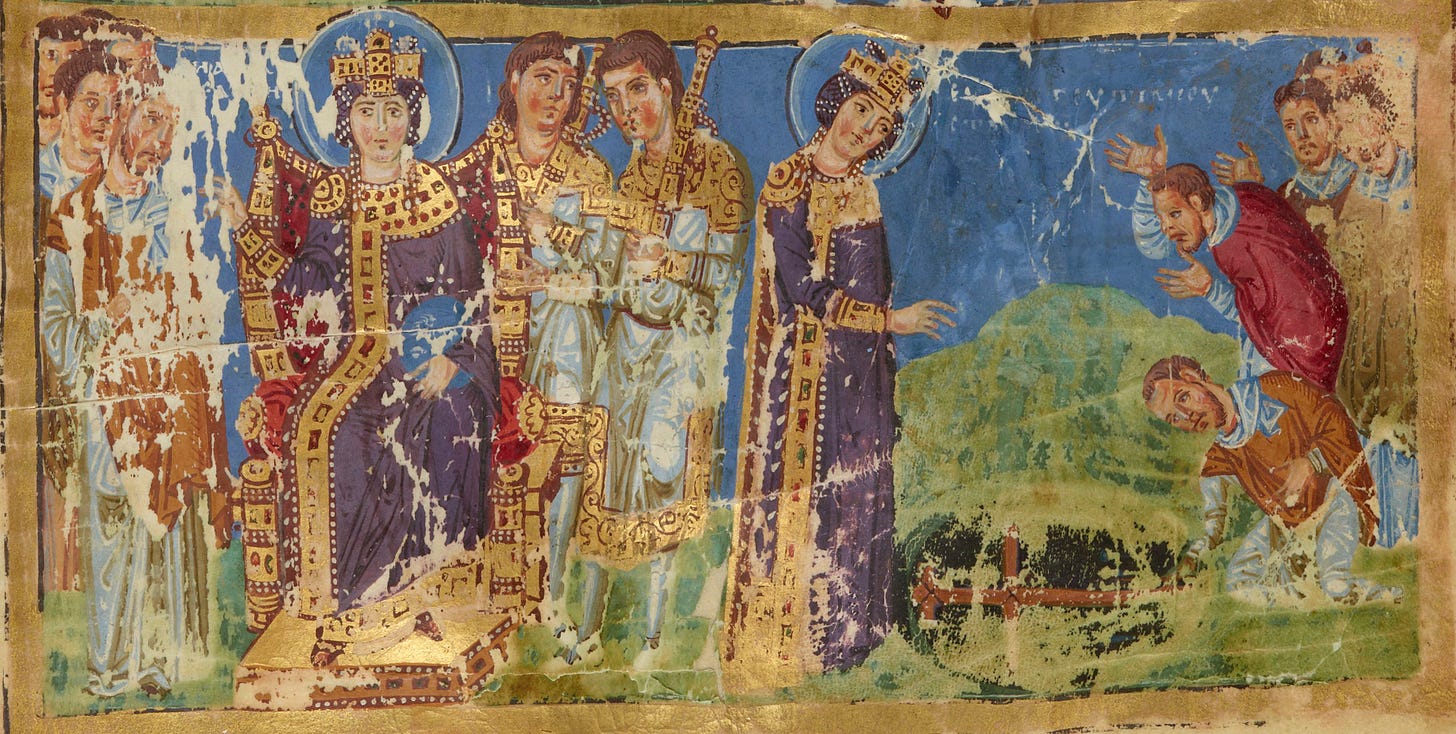Should a Christian desire his Non-Christian Spouse's Conversion?
Christian love is not liberal tolerance.
Christian love is not liberal tolerance.
J.D Vance recently stated he desired that his wife, Usha, would convert to Christianity.
Many were offended by the comment, saying it was “Hindu erasure,” it was “proselytising,” or it was a sign that he did not love his wife.
But, should a Christian husband desire the conversion of his non-Christian wife?
The answer is YES.
And if you understand this answer, you will understand a radical distinction that few notice—though it impacts your relations, your family, and your politics.
Reminder: you can support our mission and get all our members-only content for just a few dollars per month:
New, full-length articles every Tuesday and Friday
The entire archive of members-only essays
Access to our paid subscriber chat room
What does it mean to love?
If someone asked you what “love” meant, how would you define it? A general definition that many Christians give is this: to love is to the will the good of the other. You want what is good for the other person.
The greatest good that the soul can receive, according to Christians, is Jesus Christ. The acceptance of Jesus and new life in Him in Baptism brings forgiveness of sins, sanctifying grace, and the Holy Spirit—in other words, the soul is reborn, a new creature in Christ.
As such, if to love is to will what is good for the other, and Jesus is the greatest good, then there can be no greater good you could will for someone than to receive Jesus Christ.
Therefore, a Christian who loves their non-Christian spouse would always desire for them to accept Jesus Christ; because, the Christian would will that his or her beloved would receive the greatest good, Jesus.
In fact, for a Christian to not desire someone to accept Jesus would be profoundly unloving, as it would be to will a soul be deprived of its greatest good.

How is Christian love different from tolerance?
If to love is to will the good of the other, then what is good? Christians are not relativists. Christians believe that truth is the conformity of the mind to reality, and that reality is ordered and intelligible. You can know what is true, good, and beautiful in this life.
The ultimate good is God, and all other goods in life exist in relation to Him. In other words, what is good, true, and beautiful in this life is not something man determines but rather something man receives.
With love, however, there are times when the soul of the other does not want what is good. You will what is good for him or her, but he or she does not want what is good—and this can occur for many reasons. For example, a loving parent makes his sick child take the medicine because it would be good for the child to do so—even though the child does not want it. The child may even think the parent does not love him or her. Is the parent unloving? No. The parent loves even if the child cannot understand what the parent desires for him or her is a good. The good is objective not subjective—and love always desires what is objectively good for the other.
Sometimes this is referred to as “tough love,” or rather a love that wills what is good for another even if the soul of the other does not want it.
And here is the key distinction between Christian love and liberal tolerance.
Liberal tolerance wills the good that the soul of the other desires. Therefore, if the soul of the other desires something that is not good, that is permissible, because it is the good the soul wants. Who are you to judge what is good or bad for another? The good becomes relativistic, and tolerance—which often masquerades as love—encourages the soul of the other toward whatever good it wills. If the child does not want the medicine, then the parent does not desire it for him or her. It is the will of the other that determines what is good.
Under tolerance, a Christian would not desire the conversion of his non-Christian spouse, because what is good for one person is not necessarily good for the other; thus, the Christian’s role would be to encourage the non-Christian in the apparent good the non-Christian had chosen. To celebrate whatever the soul subjectively believes to be good and not desire what is objectively good for her.
Tolerance will have you encouraging souls to engage is what is deleterious for them, simply because it is what the soul desires. Christian love, however, will never encourage a soul in what is not good, but will rather always desire for a soul to receive what is good.
Christian charity and liberal tolerance are often conflated, but they lead to radically different outcomes.
For those with eyes to see
Once you can see the subtle but radical distinction between Christian charity and liberal tolerance, you will see that these two are often at war over your speech, your relationships, and even your politics.
But, if you say you love someone, then you must always desire what is good for him or her. Sometimes leading them to that good takes years of patience, but love always endures.
If you can grasp this distinction, you will have eyes to see, and will notice how often Christian love and liberal tolerance are in conflict for all around you.
Dcn. Harrison Garlick is a deacon, husband, father, Chancellor, and attorney. He lives in rural Oklahoma with his wife and five children. He is also the host of Ascend: The Great Books Podcast. Follow him on X at Dcn. Garlick or Ascend.




This is well-said. Thank you!
Love this article. It is so true. It is something that took me a long time to understand however when I did, it was as you said, tolerance often masquerades as love. But perhaps it (tolerance) is actually indifference or fear… In the end, truth is truth no matter what. ✨